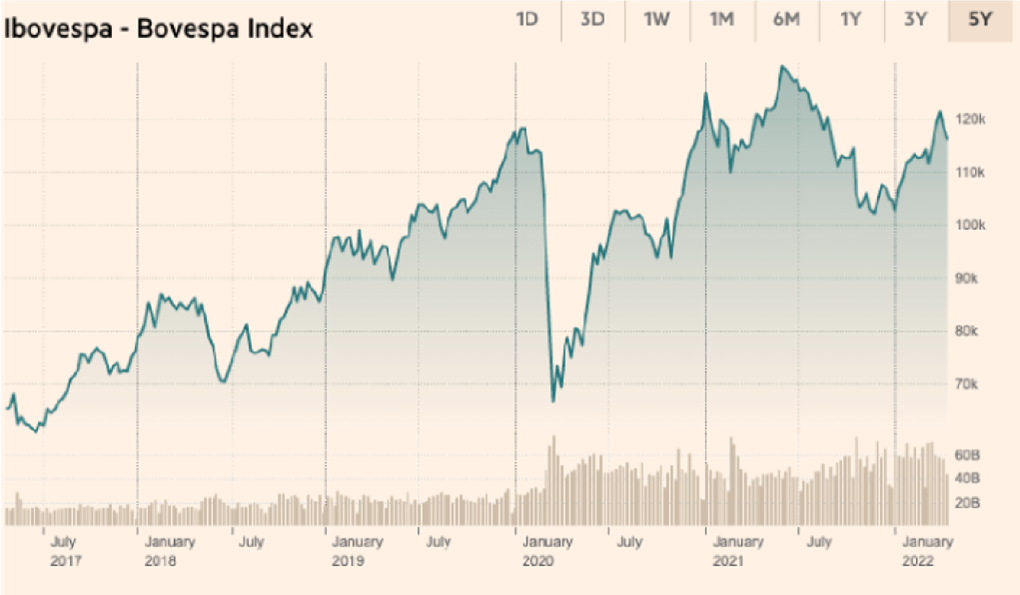
Brazil does not follow the logic of Latin American countries, it has typical nuances in its complex tax model, it is very important to carry out a legal study before any decision is made, as many companies that were not properly advised lost where many won.
Why have companies been leaving Brazil for almost 5 years?
by Bruno Martinez.
In recent years we have seen at least 15 companies leaving Brazil for reasons such as high exchange rates, fiscal war and political instability.
In early March, Brazilians were taken by surprise with Sony’s announcement that it would end some of its commercial activities in the country. The position, which seemed isolated, joins a movement of several companies leaving Brazil in recent years.
According to an investigation by Showmetech, at least 15 large companies have interrupted part of their activities since 2017, when they decided to give up the country altogether.
There is no shortage of reasons for that, after all, since 2016 the country has been going through a serious economic crisis that has already raised the unemployment rate, accelerated the increase in public debt and has kept the dollar soaring. For 5 years, the exchange rate has been above the range of R$ 3,00 without a truce.
Experts predict that this movement of companies leaving Brazil could be continuous and could incorporate other companies in the coming years, as there is still no prospect of economic growth on the horizon.
For David Kallas, PhD in Business Strategies, some factors explain this stampede of multinationals: place of operation, sector of operation and internal management of the companies. According to him, when the combination of these items does not show a positive scenario, foreign companies prefer to close operations in certain locations.
“The uncertainties that exist in Brazil make the business environment very difficult for companies to work. It’s one thing for you to keep a company in a place that grows 2% a year with stability. Another thing is when you are in a country that grows 7% and then drops 4% in a year. This is very harmful to organizations.”
The list of companies leaving Brazil is extensive and includes multinationals from the most varied segments.
In general, the main reason for these decisions is supported by an unsustainable business environment. Only at the beginning of 2021, in addition to Sony, two other large companies decided to break away from Brazil.
3M (USA): the multinational 3M announced, at the end of January, the closing of its factory in São José do Rio Preto. The brand predicts that this move will be completed in the second half of 2021, resulting in the dismissal of 120 employees.
Ford (USA): on January 12th, Ford sent a press release confirming the closure of all its factories in Brazil, still in 2021. The company, which had branches in Camaçari (BA), Taubaté (SP) and in Horizonte (CE), stated that it has suffered losses for years and that the pandemic has worsened the situation.
Mercedes-Benz (Germany): shortly before that, in December, Mercedes-Benz blamed the country’s economic situation for its poor performance in car sales. The automaker closed one of its factories, which was opened in 2016, and laid off more than 350 employees. Trucks and buses continue under national production. Wendy’s Company (USA): the American chain of square hamburgers arrived in Brazil in 2016 and didn’t last long. In 2020, the franchise completed the process of closing its units, with the closure of the largest store, located in São Paulo.
Forever 21: one of the world’s clothing retailers didn’t work here either. Forever 21 arrived in 2014, but by the beginning of this year it had shut down almost all of its 31 stores. The company, which is also going through a crisis in the United States, was unable to negotiate late payments with a large shopping mall developer.
Walmart (USA): the most traditional American hypermarket sold 80% of its Brazilian operations and had its name changed to “Big” in August 2019. None of the 550 stores in the country bears the name of the retailer, so famous in the world.
Glovo (Spain): the delivery startup Glovo also dropped out in 2019. The Spanish said that the Brazilian market is very competitive and that it would need more time and money to succeed in its business model.
Roche (Switzerland): in March 2019, the pharmaceutical group Roche announced that it would close its factory in Rio de Janeiro, ending the production of medicines on national soil. At the time, the company reported that the Rio de Janeiro operation was unsustainable.
Häagen-Dazs (USA): the ice cream brand announced the closing of its own stores in July 2018, as a way of balancing operations in Brazil. In 2016, Häagen-Dazs had already closed its São Paulo factories and laid off more than 400 employees.
Nikon (Japan): in September 2018 it was the photography giant’s turn. The Japanese Nikon announced the end of its performance and stopped selling cameras, lenses and accessories. The brand reported that it was undergoing a restructuring process.
Fnac (France): in October 2018, the Brazilian website of Fnac went offline and provided information on the completion of activities. The company informed that her stock was increasingly unfair in the face of the economic recession that Brazil was experiencing in the period.
Citibank (USA): after completing 100 years on Brazilian soil, Citibank decided to abandon its retail operations in early 2016 and focus only on investments and clients with vast wealth. Banco Itaú took over its 70 branches and a portfolio of almost half a million customers.
Kirin Holdings (Japan): the Japanese beverage company that invested R$ 4 billion in the domestic market left the country 6 years later, in 2017. The company was bought by the Dutch company Heineken, which took over the operations of Brazil Kirin.
Nintendo (Japan): in 2015, at the beginning of the crisis, the Japanese games company Nintendo said that it would no longer distribute games and consoles in Brazil, given that the local business environment made the distribution model unsustainable. In September of last year, however, the developer decided to return to the national market, with a new product, the Nintendo Switch.
HSBC (United Kingdom): Also in 2015, the British bank decided to end its main operations in Brazil and Turkey. As a result, HSBC sold its portfolio to the Brazilian bank Bradesco and, like Citibank, continues to serve only corporate and wealthy clients.
If you didn’t study and failed, blame the teacher
When I was fifteen years old, studying in one of the most traditional schools in São Paulo, Dante Alighieri, which had a reputation for being a school that demanded a lot from its students, I did very poorly on a Combinatorial Analysis test.
During dinner, willing to justify myself, I mentioned to my father the result of my exam, adding the fact that the teacher was not good enough, and didn’t explain well, thus making myself a victim of an incompetent teacher.
My father smiled and said: “From this test my son, you can follow two paths for your whole life, blame others for your failures, or learn from them, turning them into future successes.”
Globalizing is not replicating. Each country has an extremely different environment from others, and the big mistake is to think that the same equation, where only the values of variables are changed, solves the problem.
In Brazil, it is not enough to change the variables of the equation, but to create a new set of equations, based on an in-depth study.
Brazil is full of successful companies and entrepreneurs, brands that were born in Brazil and spread to the world, brands that came to Brazil and make great profits on their balance sheets.
In Brazil is that the most important thing is not what you do there, but the way you do it.
And let’s face it, if Brazil were the economic hell described by this article, it would not be by far the biggest economy in Latin America.
The real conquests of the foreign market are carried out step by step, learning along the way what can and cannot be done, because mistakes are expensive, and companies cannot afford making a lot of them.
The Direct Import model allows your product or service to be in Brazil, without risks, being the first chapter of your company’s book with a happy ending.

